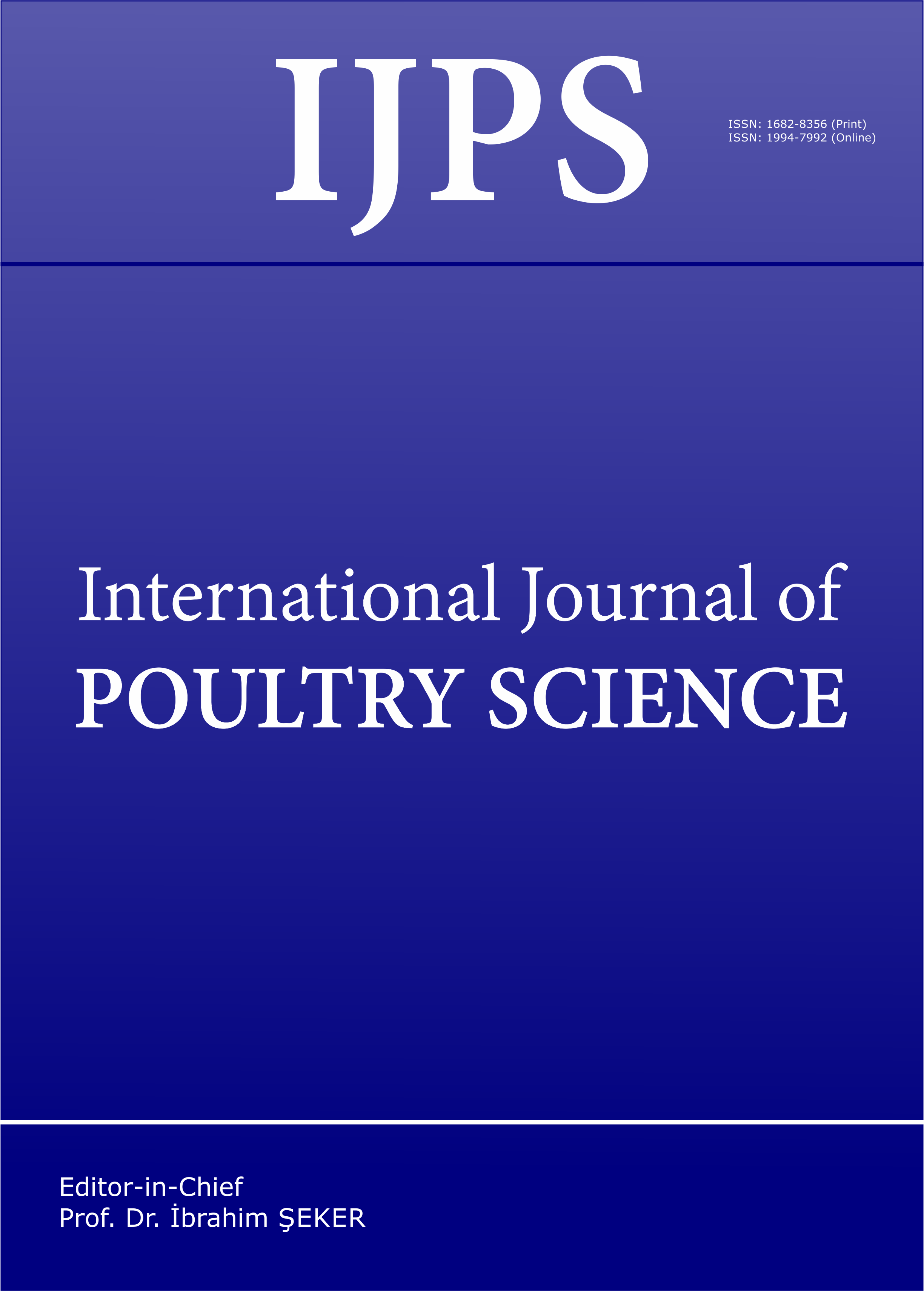Effect of Dietary Fish-Meal on Chicken Serum, Liver and Spleen Fatty Acid Metabolism
DOI:
https://doi.org/10.3923/ijps.2005.728.733Keywords:
Chicken, diet, fatty acids, fish meal, splenocytesAbstract
Fish meal is the primary component of chicken diets that contributes DHA, therefore it was speculated that increasing dietary fish meal might alter tissue fatty acid metabolism in laying hens. Leghorn chickens (48) were fed diets containing 0, 1.5, 3 or 6% fish meal for 3 and 9 weeks. All fish meal diets (at 3 weeks) produced a significant increase in serum oleic acid (C16:1) compared to control diet. In chickens fed 3% fish meal diets there was a significant increase in serum stearic acid (C18:0) at 3 weeks compared to all other dietary groups. All fish meal diets (at 3 weeks) produced a dose dependent, significant decrease in splenocyte arachidonic acid (AA, C20:4). Furthermore, hens fed 3 and 6% fish meal showed a significant increase in splenocyte nervonic acid (C24:1) compared to control diet-fed hens at 3 weeks. None of the fish meal diets produced any significant changes in liver fatty acids. Overall, poultry diets containing up to 6% by weight fish meal produced tissue specific, modest changes in fatty acids.
Downloads
Published
Issue
Section
License
Copyright (c) 2005 Asian Network for Scientific Information

This work is licensed under a Creative Commons Attribution 4.0 International License.
This is an open access article distributed under the terms of the Creative Commons Attribution License, which permits unrestricted use, distribution and reproduction in any medium, provided the original author and source are credited.

